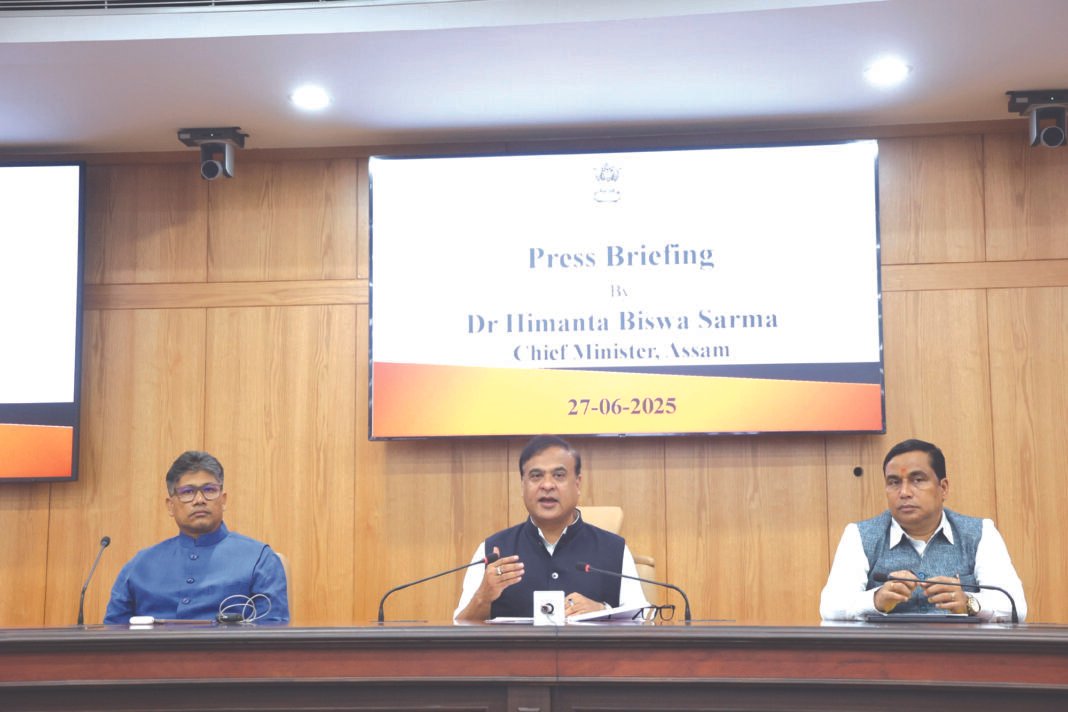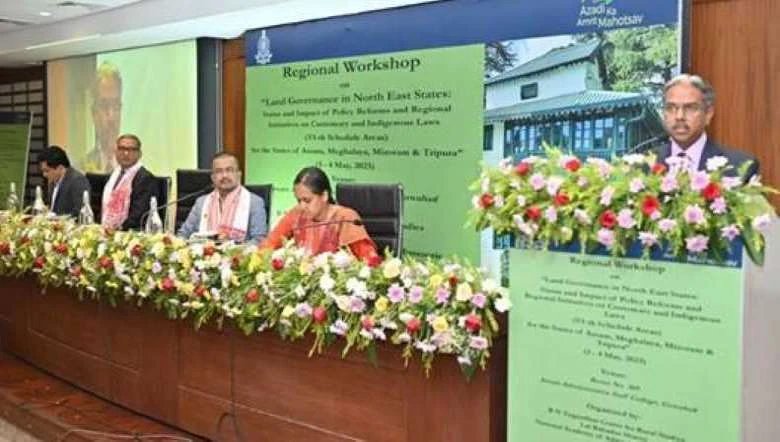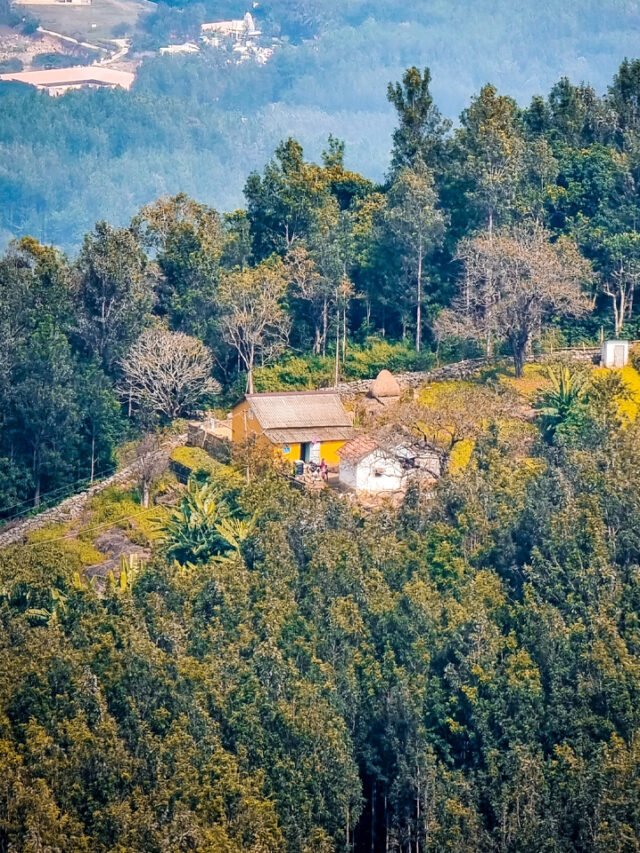HT Bureau
GUWAHATI, June 27: In a significant meeting held under the chairmanship of Chief Minister Himanta Biswa Sarma, the Assam Cabinet on Friday took a series of key decisions aimed at infrastructure development, empowerment of socio-cultural institutions, and strengthening of local governance and autonomous councils.
The decisions, which were shared through an official statement following the Cabinet meeting, reflect the state government’s ongoing commitment to inclusive development, institutional reform, and community upliftment.
One of the major highlights of the meeting was the Cabinet’s approval for allotment of government land to 942 infrastructure projects under various state departments.
These projects fall under the ambit of Mission Basundhara 3.0 and are located in urban areas across 11 districts of Assam.
The initiative is expected to ease land acquisition hurdles and accelerate the pace of public infrastructure works such as schools, hospitals, administrative buildings, and other development-oriented facilities.
Among the districts receiving the highest number of land allotments were Dhemaji with 207 projects, Lakhimpur with 175, and Barpeta with 170, followed by Bongaigaon with 152 and Dhubri with 140.
In a parallel move, the Cabinet also approved the allotment and subsequent settlement of government land in favour of 1,977 non-government institutions across 12 districts.
These include educational, religious, and socio-cultural organisations that play a vital role in shaping the social fabric and community welfare.
The districts receiving the largest number of approvals were Barpeta (296), Biswanath (261), Tinsukia (252), Charaideo (242), and Nalbari (233).
The land allotment under Mission Basundhara 3.0 for these institutions is expected to not only regularise their standing but also empower them to expand their community services.
The Cabinet also took a major step towards reforming the governance process at the grassroots level by approving amendments to certain provisions of the Assam Panchayat (Constitution) Rules, 1995.
A key feature of this amendment is the proposal to change the method of reservation for the offices of President and Vice President of Zilla Parishads.
Instead of a fixed rotational method, the reservation for Scheduled Castes (SC), Scheduled Tribes (ST), and women candidates will now be determined through a lottery system.
However, Zilla Parishads that have already had reservations through rotation or lottery in the previous term will be excluded from the current draw.
Importantly, the lottery will be conducted in a public, transparent manner in the presence of political party representatives, administrative officials, and other stakeholders.
This move is aimed at ensuring equitable opportunity and fairness for all constituencies with SC and ST representation.
In another set of decisions focused on the rights and development of indigenous communities, the Cabinet approved the Moran Autonomous Council (Amendment) Ordinance, 2025.
This ordinance seeks to amend both the preamble and core provisions of the Moran Autonomous Council Act, 2020.
The changes are expected to enhance governance mechanisms and accelerate the socio-economic uplift of the Moran community.
Along similar lines, the Cabinet also passed the Matak Autonomous Council (Amendment) Ordinance, 2025, to revise the Matak Autonomous Council Act, 2020.
The amendment aims to strengthen institutional frameworks for the development of the Matak community.
These decisions, taken together, represent a comprehensive push by the state government to support infrastructure growth, uphold the rights of traditional institutions, empower marginalised communities, and enhance grassroots governance.
The Cabinet’s initiatives under Mission Basundhara 3.0 are particularly aimed at providing clarity and security of land ownership, which has long been a sensitive and crucial issue in Assam.
By linking land reforms to broader social, cultural, and developmental goals, the government hopes to address both administrative challenges and longstanding community aspirations.












